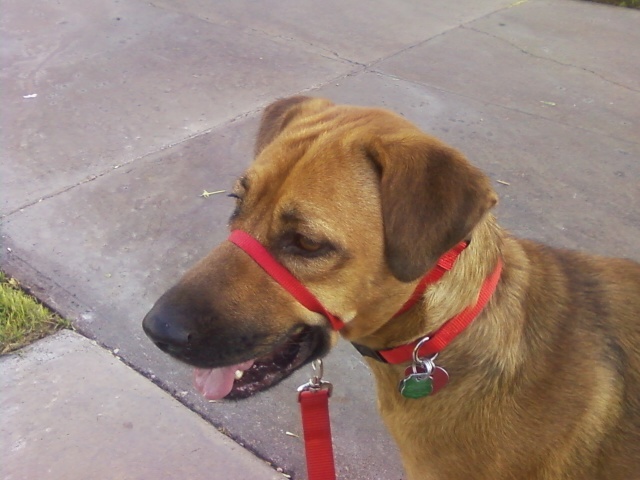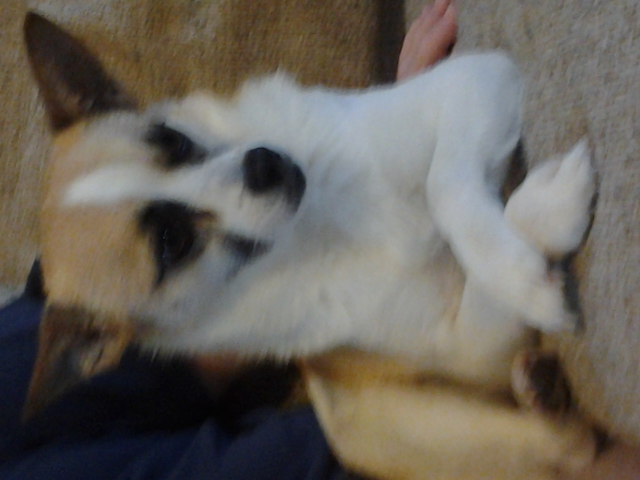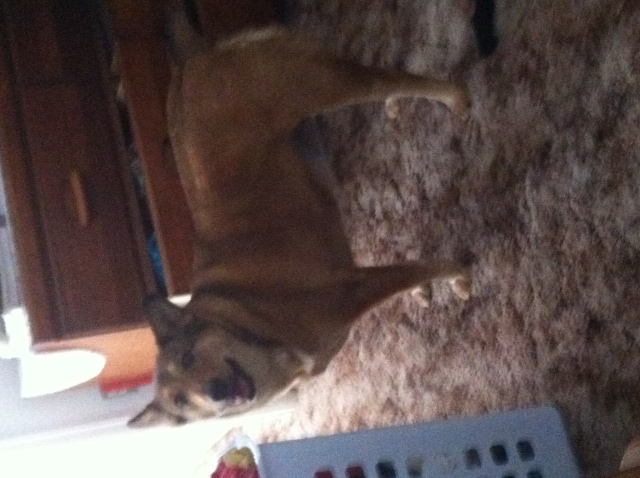QuestionI have two 4 year old pomeranians and they're not housebroken. How can I housebreak them?
AnswerHi Evelyn,
I think small dogs are harder to housetrain than large dogs. Their "accidents" are sometimes hard to find in the home, and if a correction isn't offered the moment the dog begins to squat, the dog simply doesn't associate the correction to the deed.
Housetraining for an adult dog is the same as it is for puppies , except that the dog won't need to be taken out as often and the whole process should be completed in a couple of weeks.
First rule out medical issues such as a urinary tract infection. Many different medical issues can cause a dog to need to urinate very frequently or with very little warning or to have poor "hold it" power. Parasites would be another thing to rule out if your dogs are having diarrhea.
Clean the areas in your home with an enzymatic cleaner such as Natures Miracle, so the dogs won't be tempted to relieve themselves indoors.
Set up either a dog crate, or small gated pen. The crate, or pen is where the dogs will stay when you are not home, or not in mood to supervise them. Crates are actually best, because a crate is just large enough for a dog to lay down, turn around, and stand up comfortably. It's not large enough for a dog to sleep in and also eliminate in. Nature has taught dogs to instinctively avoid soiling the area where they sleep and training with a crate is just taking advantage of this wonder of nature. Almost without exception a dog will not eliminate in the its sleeping space unless of course you have left it inside its crate for longer than it could stand.
You must monitor the dogs whenever they are not in their crates. A good way of doing this is to tie the dogs to you with an "umbilical cord", such as a leash or string.
Take them outdoors at appropriate intervals (ideally every 4 hours or oftener if you are able to during the first few days) and praise them liberally for peeing or pooping in your yard. You must walk the dogs, and not simply let them outside, because they do not grasp the concept of what going outside is for.
As you take the dog out of his crate or pen and head towards the door, you might want to add a cheerful phrase such as "wanna go out?" or "let's all go out to pee!" Don't give him any opportunities to have an "accident" inside the house.
I can pretty much guarantee that a month of strict housebreaking procedure with confinement, umbilical, and supervised potty excursions outdoors will get the dogs housebroken.
The next step would be supervised off leash freedom indoors, watching closely to see if he is indicating a need to be taken out or if he is using your dog door if you have one. Then if you see they are reliable, you can give them more and more freedom indoors with less and less vigilant supervision.
Please realize that the dogs "telling you they need to go out" is a process of mutual learning and training.
In the first step, as you see the dog looking the slightest bit like he might need to go out, you say brightly "wanna go out?" (or any phrase you've been using) and you take him out. Next step, as you see he may need to go, you say "wanna go out?" and wait a moment to see if he heads towards the door. If he does, that is great, and you follow and immediately let him out. Next step is you don't follow immediately but watch what he does when he gets to the door: he might bark or whine or scratch or nudge the doorknob or he might do nothing -- most will do something, but what he does depends on his individual personality. Don't wait more than a few seconds, because you don't want him to give up and pee in front of the door. Soon as he does any behavior that could be exaggerated into a good "asking to go out", you must react with a word of praise or with "wanna go?" and you head to the door and let him out. After a few times of you reacting promptly, you can be less prompt and in effect pretend you are a bit "dumb" or inattentive. With any luck, if you don't respond, the dog will "ask" in a more emphasized form, to which you will react. From this point on from time to time you will be slow to respond but then respond as soon as he "asks" more vigorously. Most of the time you can respond to a low level "ask", but just occasionally be inattentive to keep him tuned that sometimes he has to "ask" more vigorously.
Scolding the dogs for peeing indoors by itself won't solve the problem and may make it worse by simply teaching them that it is unwise (dangerous) to pee in your presence! After a month of being praised for peeing outdoors, if the dogs should make a mistake indoors right in front of you, you can scold within 30 seconds, then that could be appropriate -- but not nearly as good as recognizing the warning signs that he is thinking about it, interrupting him with a sharp word , and promptly taking him outdoors and praising him for doing it outdoors.
If you're not familiar with crating your dogs, you can read about it here:
http://www.petplace.com/dogs/crate-training-for-dogs/page1.aspx
http://www.caninecollege.com/cratetrn.htm
I hope I've been a help.
Best of luck!
Patti

 My dog Kiya
Question
Kiya
My new dog Kiya is a 2 yr old German Shep
My dog Kiya
Question
Kiya
My new dog Kiya is a 2 yr old German Shep
 What type of do is my dog Abby
Question
Abby Abby
what type of dog is my
What type of do is my dog Abby
Question
Abby Abby
what type of dog is my
 Chewing and ripping apart
Questionbut... im a full time student..... walk her dai
Chewing and ripping apart
Questionbut... im a full time student..... walk her dai
 about babygirl my 14 week yorkie
Question
babygirl brooklyn
i do no whats going on with
about babygirl my 14 week yorkie
Question
babygirl brooklyn
i do no whats going on with
 My very overly protective puppy
Question
Marla :)
Hello! I adopted a four year o
My very overly protective puppy
Question
Marla :)
Hello! I adopted a four year o